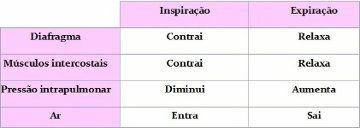THE testosterone it is the main male sex hormone, but it is also found in women. The hormone is produced mainly in Leydig cells inside the testes, but a small amount is produced in the adrenals. In women, production is also found in the ovaries. It is noteworthy that in women the amount of testosterone is much lower than in men.
This hormone is directly linked to male sexual characteristics, such as organ development. sexual, sperm production, voice deepening, beard appearance and development of muscles. Still in the embryonic stage, it is responsible for sexual differentiation, leading to the formation of male genitalia.
After birth, testosterone production is low until puberty, where it tends to increase again. In this phase, the hypothalamus will promote the release of the gonadotropin releasing factor, which will stimulate the production of luteinizing hormone, which, in turn, will stimulate Leydig cells to produce testosterone.
It is during puberty that testosterone will cause secondary sexual characteristics to appear, such as a deepening of the voice, increased hair and muscle growth. The hormone is also related to libido and aggression.
Do not stop now... There's more after the advertising ;)
It is important to highlight that in addition to its androgenic function, testosterone also acts to increase the production of erythrocytes, accelerates bone matrix deposition, acts on lipid metabolism and is related to sodium and water retention by the kidneys.
After the age of 50, there is a steady decline in the production of this hormone, which usually causes a decrease in libido, behavioral changes, decreased muscle mass, increased fat, depression, insomnia, osteoporosis, among others symptoms. Not all men will suffer from the decline in production, only those where the decline is very marked. This condition is usually called andropause, however a more appropriate name is partial androgenic insufficiency in elderly men.
By Ma. Vanessa dos Santos
Would you like to reference this text in a school or academic work? Look:
SANTOS, Vanessa Sardinha dos. "What is testosterone?"; Brazil School. Available in: https://brasilescola.uol.com.br/o-que-e/biologia/o-que-e-testosterona.htm. Accessed on June 28, 2021.

